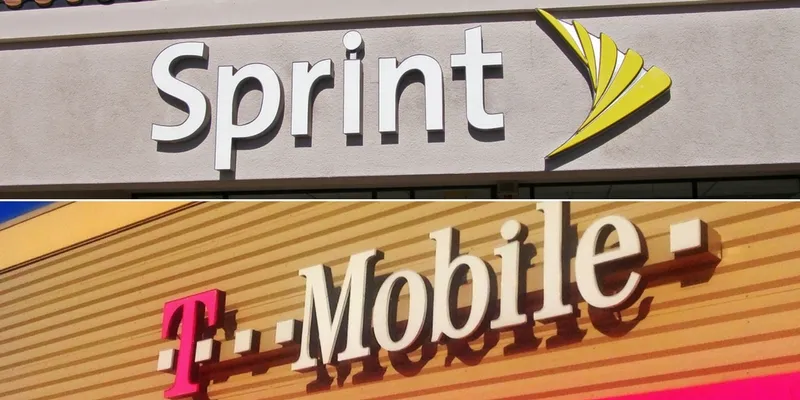SoftBank’s Sprint and Deutsche Telekom’s T-Mobile are finally merging for $26.5 B
Two of the Big Four in the US wireless communications industry – Verizon, AT&T, T-Mobile, and Sprint – have finally agreed to merge. In an announcement on Sunday, April 30, T-Mobile and Sprint revealed that the two companies have finally agreed to merge into a single corporate entity in an all-stock deal valued at $26.5 billion. The new company will continue to operate under the T-Mobile name, with about $74 billion in annual revenue and 70 million wireless subscribers across the US, according to Bloomberg.

The deal comes after years of negotiation and two failed attempts to push the merger through. T-Mobile is owned by German company Deutsche Telekom AG, while Japanese firm SoftBank has the controlling stake in Sprint; the two companies gave up their first attempt to merge in 2014 when the-then Obama government indicated it had antitrust reservations about the deal. A second successive attempt was aborted after the two firms could not agree on how to manage the leadership of the new entity, with SoftBank CEO Masayoshi Son adamant about not relinquishing control. However, that hurdle appears to have been passed this time.
According to reports, Deutsche Telekom will end up with a 42 percent ownership stake in the new company while SoftBank will have 27 percent. T-Mobile’s current CEO John Legere will continue to be CEO of the new entity, while Mike Sievert – current COO of T-Mobile – will be President and Chief Operating Officer. Deutsche Telekom’s Chairman Tim Hoettges will serve in that role at the combined company, and the board will include Masayoshi as well. The companies have also said that they plan to maintain dual headquarters for the new firm in Bellevue, Washington and Overland Park, Kansas.
Mike Sievert also told Bloomberg there are plans to add to the combined worldwide workforce of 240,000 in the future, with most of the new hires likely to be in rural areas where network expansion is planned.
The deal is, of course, not finalised yet and still needs to win approval from US regulators. A spokesperson for the Federal Communications Commission (FCC) declined to comment, but previous attempts have been viewed with suspicion by regulators, especially as this would reduce the major wireless players in the US from four to three. While Verizon and AT&T are unlikely to worry too heavily about the new T-Mobile, regulators are likely to voice concerns about competition and benefits to consumers. For their part, T-Mobile and Sprint have said that they expect the deal to be finalised and completed by the first half of 2019 at the latest – an ambitious goal.
T-Mobile and Sprint have complimentary wireless offerings that could offer a big boost for their combined efforts to develop fifth-generation (5G) spectrum technology. T-Mobile has a large spectrum of lower-band airwaves that can cover greater distances, while Sprint has the largest US spectrum of high-band radio waves that can handle more volumes of data but have limited reach. Combining the two together could see the companies take a big leap towards the push for 5G. In a conference call on Sunday, John Legere commented, “We are going to have an impact on America...We are going to drag the rest of the players kicking and screaming to the prize, which is American leadership [in fifth-generation wireless networks].”







